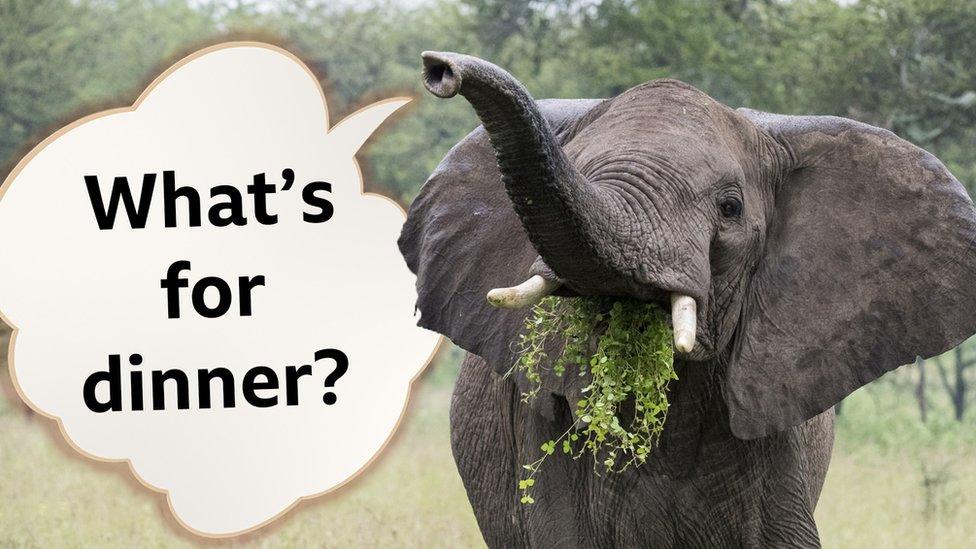New study shows elephants vary what they have for dinner a bit like humans
- Published
- comments

Could you imagine eating the same food day in, day out like some animals do?
Take pandas for example. They'll happily snack on bamboo and seemingly never get bored.
But most humans want to eat something different for tea each night and a new study from Brown University has shown that elephants might feel the same way.
Researchers found that elephants choose what to munch on, based not only what's available to them, but also what they fancy to eat and what their needs are.
If you can't see the quiz, click here
Biologists have known that elephants eat leaves but until now, haven't known exactly what kind of plants they prefer chomping on.
That's because elephants are difficult and dangerous to be close-up to, to observe their behaviour.
They also move long distances, feed at night in thick bush where the plants they're eating are quite small and difficult to identify.
Elephants are herbivores which means they only eat plants
So researchers decided to try and closely watch the habits of two groups in Kenya to find out what exactly they eat for dinner.
The scientists used a technique called DNA metabarcoding to look at what two groups of elephants were eating.
It's a technique that uses genetics to identify plant species from samples of elephant poo.
Elephants forage in groups
The study found that an while elephants forage together in a group, individuals don't always eat the same things.
For example, a pregnant elephant might want and need different foods while she's carrying the baby.
Researchers say their findings will help conservationists to understand the dietary needs of elephants and therefore keep them not only full but also happy.
A female elephant's dietary requirements might change depending on whether she's pregnant or is nursing the baby
Tyler Kartzinel worked on the study said: "By better understanding what each individual eats, we can better manage iconic species like elephants, rhinos and bison to ensure their populations can grow in sustainable ways."
"Wildlife populations need access to diverse dietary resources to prosper.
"Each elephant needs variety, a little bit of spice - not literally in their food, but in their dietary habits."
- Published25 April 2023
- Published28 June 2023
- Published23 May 2023
